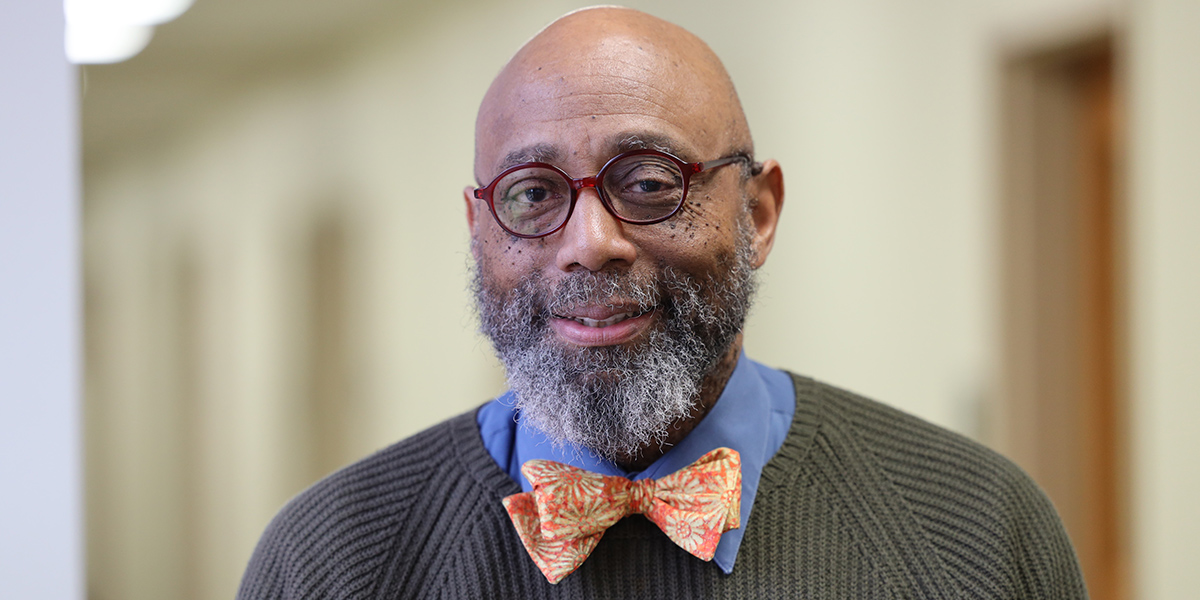Meet Baylor’s nationally recognized expert on multicultural Biblical hermeneutics

In over a quarter-century of teaching scripture, Dr. Stephen Reid has learned many times over that most people read the Bible through the lens of their own experience.
An ordained minister and professor of Christian scriptures in Baylor’s George W. Truett Theological Seminary, Reid has guided countless students through the process of interpreting scripture and has given voice to individuals whose Biblical interpretation might otherwise go unnoticed.
With a focus on hermeneutics — “a fancy way of saying the rules of reading” scripture, as Reid explained in a 2019 Baylor Connections interview — Reid has long studied ancient Biblical texts and shared with modern students how to read them. More specifically, he’s a nationally recognized expert on Black Biblical and multicultural hermeneutics, and three of the four books he’s written or co-authored focus on various aspects of multicultural reading or interpretation of the Bible.
“One of the things that I’ve realized teaching scripture for over a quarter of century now is that people read the text based on their life experience,” he explains. “For instance, one of the things that’s that’s been fascinating to me is that when we talk about lamb or meat in antiquity, our students tend to think of HEB and grocery stores. And so you really have to help them understand that the writers of the text were in a sort of pre-grocery store world… You have to be able to understand their life experience. We do that through language. We also do that through the study of history.”
At Baylor, Reid has found his study of ancient Scriptures improved through the use of cutting edge technology. When asked to write an essay on African-Americans and Deuteronomy for the Oxford Handbooks, he wanted to include the opinion of not only scholars, but of ordinary people, seeking to better understand how they read scripture through the lens of their own experiences. Baylor Libraries’ Digital Scholarship helped sort through hundreds of “freedom narratives,” written by freed slaves in the 1700s and 1800s, for those few that mentioned Deuteronomy — making what would have been a Herculean manual effort practical.
As a result, “people who would have otherwise been invisible as Biblical scholars are now visible as Biblical interpreters, because we can see and compare how they use the text,” he says. “Through this process, we can hear all sorts of voices: African-American voices, the voices of women… And so we really do get to find people that otherwise we would never recognize.”
Next, Reid plans to conduct a similar (but much larger) project on the book of Psalms.
Sic ’em, Dr. Reid!

